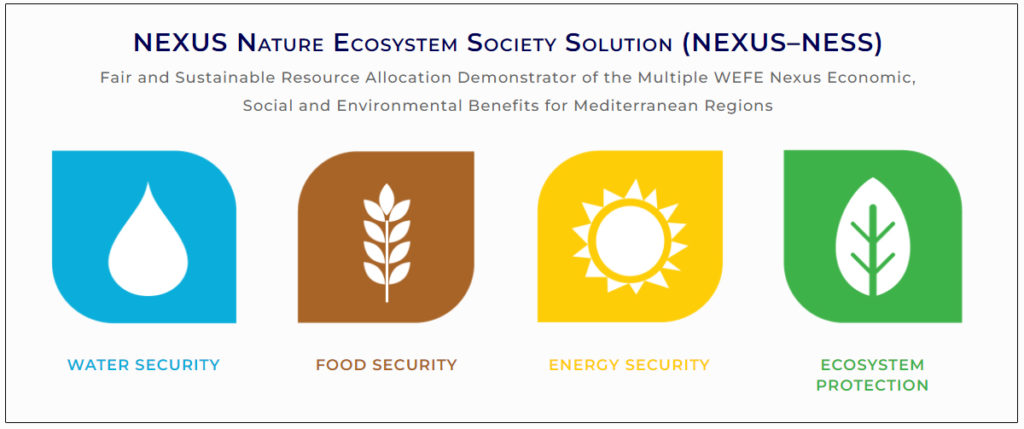WARREDOC is the coordinator PRIMA NEXUS-NESS project.
NEXUS-NESS project involves an highly international and inter-disciplinary consortium, which includes 6 European universities (University for Foreigners of Perugia, Politecnico di Milano,
Universidad Politecnica de Madrid, University of Florence, Scuola Superiore Sant’Anna di Pisa, Institut Agro Sol Agro Hydrosysteme Spatialisation), 1 non-EU university (Alexandria University), 1
EU large R&D organization (Fondazione ENI Enrico Mattei), 3 European SMEs (XPRO Consulting Limited, DESIGN & DATA, Urby et Orbit) and 2 public research institutions from Tunisia (Institut
Region Arides de Medenine, Commissariat Regional au Developpement Agricole Gabes) to cover all the knowledge domains required by the proposed integrated approach.
PRIMA (Partnership for Research and Innovation in the Mediterranean Area) is the most ambitious joint programme to be undertaken in the frame of Euro-Mediterranean cooperation. By funding Research and Innovation (R&I) through competitive calls, PRIMA aims to: “build research and innovation capacities and to develop knowledge and common innovative solutions for agro-food systems, to make them sustainable, and for integrated water provision and management in the Mediterranean area, to make those systems and that provision and management more climate resilient, efficient, cost-effective and environmentally and socially sustainable, and to contribute to solving water scarcity, food security, nutrition, health, well-being and migration problems upstream”.
PRIMA also aims to contribute to United Nations’ Agenda 2030 through the achievement of the Sustainable Development Goals (SDGs). PRIMA consists of European Union Member States, Horizon 2020 Associated Countries and Mediterranean Partner Countries on an equal footing basis (co-ownership, co-management and co-funding) with the Participation of the European Commission, under the framework of an art.185 TFEU.
NEXUS-NESS aims at the co-production and co-demonstration (i.e., actions carried out with stakeholders) of WEFE Nexus asset plans for a fair and sustainable allocation of natural resources.
NEXUS-NESS transfers data and numerical models of natural resource management on a hydrological basis to the operational field to test a new service, called NEXUS-NESS Service, in real case studies. The project will adopt a bottom-up approach in four regions identified in Italy, Spain, Egypt and Tunisia where practical experimentation sites will be created, called Nexus Ecosystem Labs, following the principles of Living Labs and Responsible Research Innovation, to foster ecosystem innovation. (Innovation Ecosystem Approach).
A new digital platform (called Multi Stakeholder and User Platform) will facilitate the involvement of stakeholders and citizens for the broadest sharing of the project’s actions, creating the basis for a process of change, both technical and cultural, lasting over time, strongly supported by the virtuous and continuous synergy between universities, industries, public administration and citizens.


 Italiano
Italiano